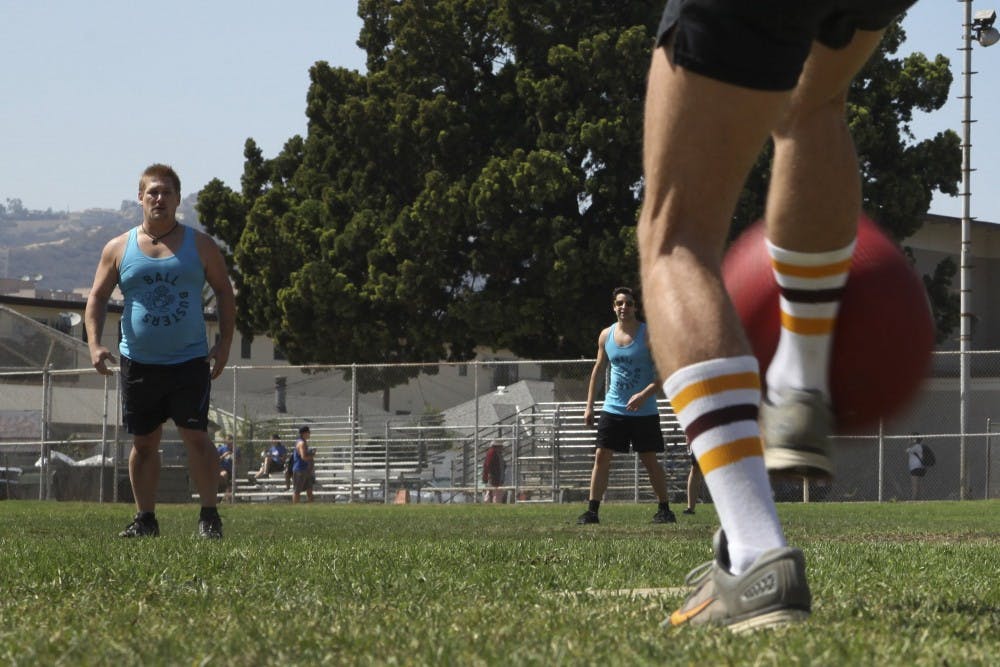At the beginning of the school year, we all told ourselves we were going to get fit. After all, we have been educated on the importance of physical exercise in maintaining our health and balance in our lives. Plus, living in Arizona, we all want that beach body year-round. Unfortunately, as academics pick up and we become burnt-out from the work-load, we forget to work on our physical fitness.
It is evident that all individuals can cut time out of their busy schedules to work out. Many ASU students wake up before 7 or even 6 a.m. to do so, but this dedication does not come easy. Recently, it has been suggested by many states in the U.S. that there be a physical exercise requirement reinstated for college students, especially at large universities such as ASU.
According to a study at Oregon State University, all college students in the U.S. were required to take physical education courses or fill exercise requirements in the 1920s, however, this number has fallen to 39 percent, which is the lowest is has ever been in the country. According to the study, in which 354 universities were selected, many educational institutions are cutting courses that offer physical exercise from their programs. With more than 34 percent of adolescents being overweight and 17 percent being obese, this is a dangerous tactic that overlooks many years of research concerning the merit of exercise for young adults.
According to Oregon State University researcher, Brad Cardinal, “brain scans have shown that physical activity improves the area of the brain involved with high-level decision making.” With exercise having obvious merit to academic performance, it is surprising to see these academic institutions don't place more emphasis on them.
Some would argue that college should teach independence; therefore, students should be able to form healthy habits on their own without this hand-up from the university. This logic is not faulty. However, most won’t realize the merits of exercise until they get a taste of it. Many studies already outline the positives of exercise including increased academic performance, better overall health, happiness and mental stability, but reading about it is usually not enough.
Requiring students to exercise in a formal classroom setting would provide them with structure in their schedule and would uncover the merits of physical exercise to them personally, hopefully enticing them to continue on the path to becoming more fit.
Additionally, gym intimidation is a real thing. Many individuals are anxious to partake in exercise because they believe they will look ridiculous doing so in a large room of people. After all, walking into a room with confusing machinery and physically fit individuals is a daunting task. Not only do we feel inadequate, but we don’t know where to start.
At ASU, this gym intimidation is even more pronounced. It is safe to say that the gym is full for most of the day, and many of the gym-goers seem to know what they are doing; they have a routine laid out. The ratio of men to women doesn’t help either.
So why not work out at home or at a smaller, private gym? Most students don’t have access to the state-of-the-art work-out equipment present at ASU’s fitness center, and many would prefer to exercise in the comfort of an enclosed, air conditioned room without the additional expense of joining another gym, so most of us are left with the choice of taking on the feat of visiting the busy gym with limited time and energy or not exercising at all. Most of us take the latter.
Having a physical fitness requirement would put students on a level playing field, allowing them to reach progress at their own pace without feeling pressured to fit in at the gym or tackle the task of making time in their schedule. Additionally, providing them with an incentive to exercise, these requirements could result in more students focusing on their health.
Related links:
15 ways to stay healthy and avoid the 'Freshman 15'
Well Devils challenge freshmen to pursue healthy lives
Reach the columnist at ghirneis@asu.edu or follow @ghirneise2 on Twitter.
Editor’s note: The opinions presented in this column are the author’s and do not imply any endorsement from The State Press or its editors.
Want to join the conversation? Send an email to opiniondesk.statepress@gmail.com. Keep letters under 300 words and be sure to include your university affiliation. Anonymity will not be granted.
Like The State Press on Facebook and follow @statepress on Twitter.




